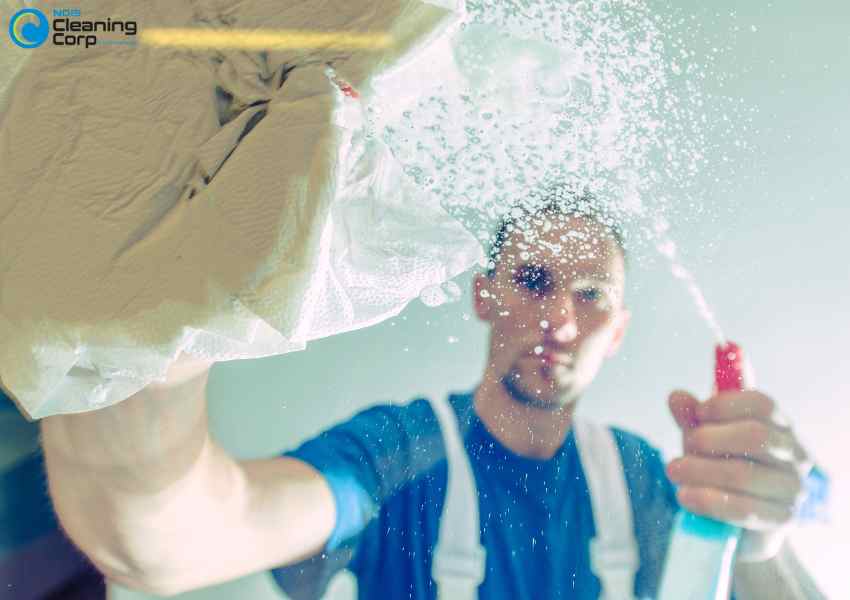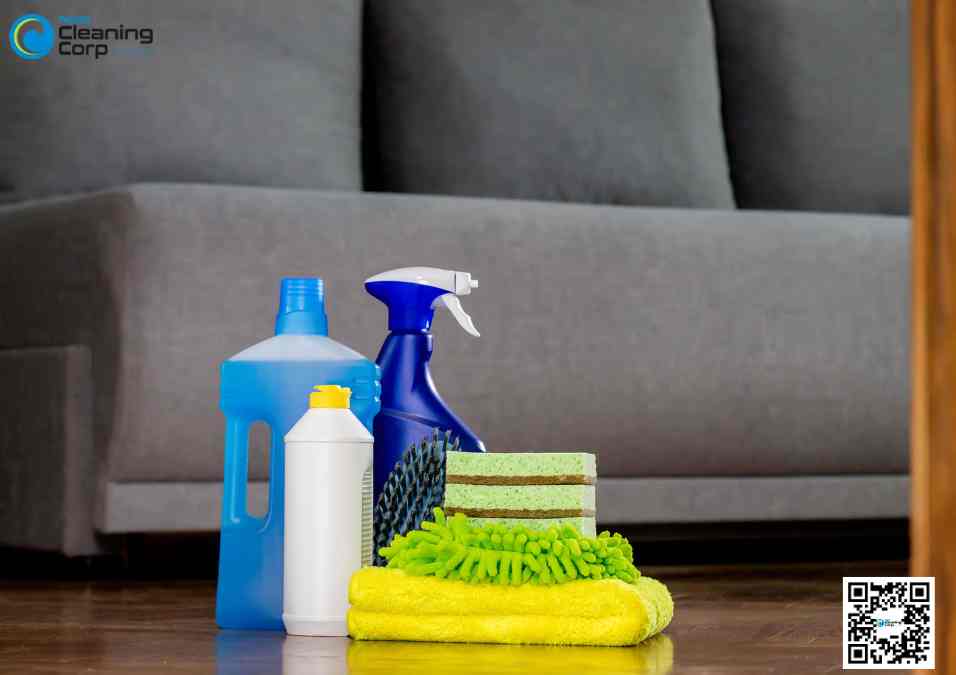Does the NDIS Fund Cleaning Services?
Yes. The NDIS does fund cleaning services — but it...
A clean home boosts independence for NDIS participants in ways you might not expect.
As the owner and writer for NDIS Cleaning Corp., I’ve seen firsthand how cleanliness can be a game changer for individuals navigating the National Disability Insurance Scheme (NDIS).
Independence is not just a goal for many NDIS participants; it’s a fundamental aspect of living a fulfilling life.
It means having control over daily choices, routines, and the environment in which one lives.
Yet, maintaining that independence can often feel overwhelming, especially when faced with the daily challenges that come with a disability.
That’s where the importance of a clean living environment comes into play.
A clean home can significantly enhance an individual’s ability to function, thrive, and ultimately, enjoy life to its fullest.
When spaces are organized and tidy, it becomes easier to navigate, reducing the likelihood of accidents or injuries and enabling individuals to participate in their own care routines.
In this post, we’ll explore how cleanliness impacts independence, focusing on the mental and physical health benefits, the empowerment that comes from taking ownership of one’s space, and how a clean environment allows for smoother daily activities.
Let’s dive in!

Cleanliness has a profound effect on mental health, and it’s something I’ve witnessed repeatedly in my work with NDIS participants.
Imagine walking into a space filled with clutter—dirty dishes piled high, dust settling on surfaces, and clothes strewn about.
It’s not just visually overwhelming; it can create a sense of chaos that seeps into your mind.
Conversely, stepping into a clean and organized home can instantly lift your spirits.
Research has shown that a tidy environment reduces stress and anxiety, fostering a sense of calm and control.
For instance, I remember working with a lovely participant named Sarah, who had been struggling with anxiety for years.
Her home was cluttered, and she often felt overwhelmed by the mess.
After a thorough cleaning and organizing session, Sarah told me how she felt like a weight had been lifted off her shoulders.
“I can finally breathe in my space,” she said, a huge smile on her face.
That clean environment didn’t just change her physical space; it transformed her mental well-being.
She became more motivated to engage in social activities and pursue her hobbies, things she had put on hold due to her anxiety.
It’s moments like these that remind me how impactful a clean home can be.
Let’s not forget the physical health benefits of maintaining a clean environment.
Cleanliness plays a critical role in preventing illness and promoting overall well-being.
Dust, mold, and allergens thrive in dirty spaces, often leading to respiratory issues and other health problems.
According to the Centers for Disease Control and Prevention (CDC), regular cleaning can reduce the risk of illness by 80%.
For NDIS participants, who may already face health challenges, a clean home can be crucial in maintaining their health.
Take James, for example.
He has mobility challenges and is prone to respiratory issues.
Before implementing a regular cleaning routine, he often fell ill, which impacted his ability to participate in activities and appointments.
Once we established a cleaning schedule tailored to his needs, James noticed fewer instances of illness.
He could breathe easier and even had more energy to engage with his community.
It’s a clear reminder that cleanliness isn’t just about aesthetics; it’s about health and well-being.
One of the most empowering aspects of having a clean home is the sense of ownership it fosters.
When individuals take charge of their space, they are often more motivated to maintain it.
Cleaning becomes an act of self-care rather than a chore.
This ownership can transform the way NDIS participants view their environment.
Let’s take a moment to highlight Lisa, a young woman with a passion for art.
When I first met her, her apartment was filled with clutter, but buried under that clutter were her art supplies and creations.
After a thorough clean-up and organization, we arranged her living space to feature her artwork prominently.
Lisa was beaming as she explained how proud she felt of her home.
“I’ve never felt like this before,” she admitted.
Her clean, personalized space not only uplifted her spirits but also reignited her passion for art.
She started hosting small gatherings for friends, inviting them to view her art and share in her creativity.
That ownership transformed not just her home but her entire outlook on life.
A clean home can make engaging in daily activities significantly easier for NDIS participants.
When spaces are organized, it becomes simpler to complete tasks like cooking, cleaning, and managing personal care.
For example, let’s talk about Tom, a participant who has a passion for cooking but finds it difficult to prepare meals in his messy kitchen.
After we helped him declutter and clean his kitchen, he discovered how much easier it was to navigate the space.
Now, he’s cooking meals and even experimenting with new recipes!
He told me, “I never realized how much a clean kitchen could change my experience in cooking.”
In essence, cleanliness not only facilitates independence but also encourages NDIS participants to engage fully in the activities they love.
Creating effective cleaning routines can be a game changer for NDIS participants looking to maintain a clean home.
When I first started NDIS Cleaning Corp., I realized that many of my clients felt overwhelmed by the idea of cleaning.
So, I always emphasize the importance of breaking tasks down into manageable routines.
For instance, instead of spending an entire Saturday cleaning, try dedicating just 15 minutes each day to specific tasks.
Here’s a simple approach:
I recall working with Mark, an NDIS participant who had a busy schedule filled with therapies and social activities.
We established a quick morning routine for him: make the bed, put away dishes, and do a quick tidy-up of the living space before heading out for the day.
He found that dedicating just a few minutes in the morning made a huge difference in how he felt when returning home.
“It’s like I’m coming back to a peaceful space,” he said, smiling.
By creating small, sustainable habits, participants can enjoy a clean home without feeling stressed or overwhelmed.
Support workers play a crucial role in helping NDIS participants maintain cleanliness while promoting independence.
I often tell my clients that having someone assist with cleaning doesn’t mean giving up control; instead, it can enhance their ability to manage their homes effectively.
Here’s how support workers can make a positive impact:
I remember working with Claire, who initially felt reluctant to let her support worker help her with cleaning tasks.
Once we established a collaborative approach, she found that she loved having someone to share the experience with.
“Now, it feels like a team effort,” Claire told me, and that mindset shifted everything for her.
Involving support workers can enhance independence while maintaining a clean and organized home.
Let’s not overlook the power of technology and tools in maintaining cleanliness!
In today’s world, there are so many innovative options available that can make cleaning easier and more efficient for NDIS participants.
Here are a few tools and technologies I recommend:
For example, I helped a participant named Nina who had difficulty bending down to clean floors.
We equipped her with a lightweight mop with an adjustable handle, and she loved it!
“I feel like I can clean without struggling,” she said, beaming with pride.
Utilizing technology and the right tools can significantly enhance the cleaning process, allowing NDIS participants to maintain their independence while keeping their homes tidy.
Sharing success stories from NDIS participants can truly illustrate the transformative power of maintaining a clean home.
Let’s take a look at a few inspiring examples:
Sarah, a vibrant participant in her late teens, faced anxiety and stress due to her messy living environment.
After working together on cleaning routines, we focused on creating a calm, organized space for her.
Over time, Sarah became more involved in her cleaning process, and I was amazed by her progress.
Not only did she maintain a clean home, but she also reported feeling less anxious.
One day, she told me, “I can finally invite friends over without feeling embarrassed!”
The joy of having a clean space allowed her to reconnect with her social life.
James, a keen cook, found it difficult to prepare meals in his cluttered kitchen.
After implementing a regular cleaning schedule, he was able to reclaim his cooking space.
With the kitchen organized and tidy, he felt inspired to try new recipes.
I remember the day he invited me over to share one of his culinary creations.
“Cooking is so much more enjoyable now,” he said, grinning from ear to ear.
His success not only improved his physical health but also rekindled his love for cooking.
Claire initially hesitated to involve her support worker in cleaning tasks.
Once we established a routine that encouraged collaboration, she quickly changed her perspective.
Now, Claire and her support worker work together to keep her home clean.
“I never thought I could enjoy cleaning, but now it’s fun!” she exclaimed during one of our sessions.
The combination of support and independence has empowered her to maintain a clean environment confidently.
Cleaning plays a significant role in boosting independence for NDIS participants, and let me explain why.
When participants maintain a clean environment, they often experience an increase in confidence and self-sufficiency.
For example, I remember working with Lisa, an NDIS participant in her forties.
She struggled with mobility issues, which made it challenging for her to keep her home tidy.
After we implemented a routine that allowed her to manage small cleaning tasks—like wiping down surfaces and organizing her living room—Lisa began to feel more in control of her space.
“I never realized how much a clean home would make me feel like I was in charge of my life again,” she shared with me.
Beyond just feeling good, cleanliness can lead to practical benefits, such as preventing illnesses and reducing anxiety.
When a home is clean, it’s less likely to harbor allergens, dust, and germs.
Participants like Mark, who has respiratory issues, found that regular cleaning helped him breathe easier.
He told me, “Since I started cleaning more regularly, I don’t feel as stuffy, and I can enjoy my hobbies without interruptions.”
Ultimately, a clean home empowers participants by enhancing their physical and mental well-being, fostering a sense of pride in their space, and allowing them to engage more fully in their daily activities.
Here are some simple cleaning tips that NDIS participants can implement right away to help maintain a clean and organized home:
By implementing these tips, NDIS participants can maintain a clean home without feeling overwhelmed.
Absolutely! Support workers can be instrumental in helping NDIS participants with cleaning tasks while promoting independence.
Their role is not just about doing the work; it’s about empowering participants to take charge of their own living spaces.
Here’s how support workers can make a difference:
In essence, support workers can empower NDIS participants to become active participants in their own home maintenance, enhancing their independence while ensuring a clean living environment.
In conclusion, a clean home boosts independence for NDIS participants in ways that can truly transform their lives.
From improved mental well-being to enhanced physical health, the benefits of cleanliness extend far beyond aesthetics.
Creating and maintaining a tidy space fosters a sense of control, pride, and empowerment, allowing participants to engage more fully in their daily activities.
I encourage you to consider how a clean home can positively impact your life or the life of someone you know.
Have you experienced a difference in your well-being after cleaning?
Or perhaps you have your own tips to share?
I invite you to leave your thoughts and experiences in the comments section.
Let’s create a community of support and inspiration where we can all learn from each other!

Yes. The NDIS does fund cleaning services — but it...

Alright, let’s get straight into it. These are the questions...

NDIS cleaning services are specifically designed to cater to the...

The role of professional cleaning in maintaining a safe and...

Studies consistently show that living in a clutter-free, organized space...